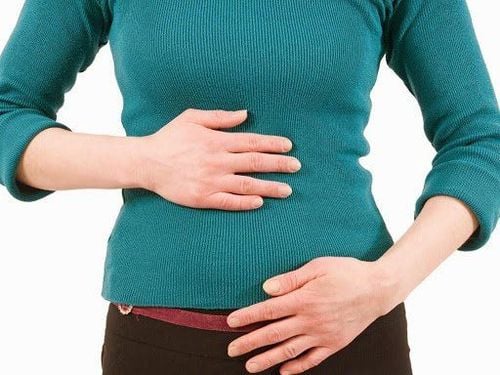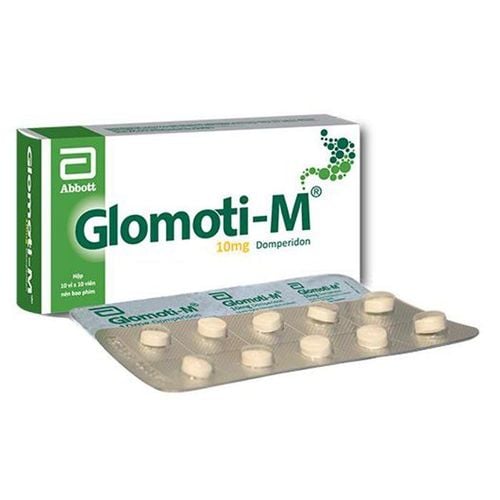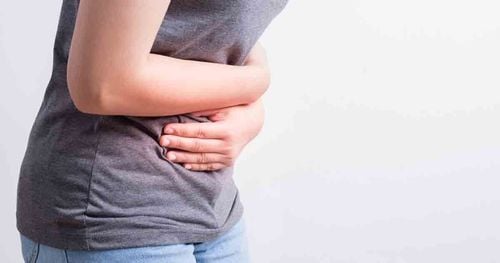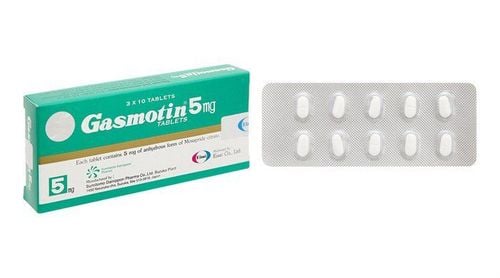This is an automatically translated article.
Posted by Master, Doctor Mai Vien Phuong - Department of Examination & Internal Medicine - Vinmec Central Park International General Hospital
About 16–30% of people say they experience frequent bloating, which is quite common. While bloating is sometimes caused by serious medical conditions, it's usually caused by your diet and certain foods or ingredients that you're intolerant of.
1. What is flatulence?
Bloating is when your belly feels bloated after eating, usually due to excess gas production or a disorder in the movement of the muscles of the digestive system.
Bloating can often cause pain, discomfort, and a "stuffy" sensation. It can also make your belly look bigger.
In some people, bloating is mainly due to increased sensitivity. Feeling as if there is increased pressure in the abdomen, even though there isn't.
2. What symptoms are commonly associated with bloating?
Bloating occurs when the gastrointestinal (GI) tract is filled with air. Most people describe bloating as a feeling of bloating, fullness, or swelling in the abdomen. Your abdomen may also be swollen (distended), hard, and painful. Bloating is often accompanied by:
Pain Too much gas (flatulence) Ợ Gas Rumbling or rumbling stomach Bloating can interfere with your ability to work and participate in social or recreational activities. Bloating is common in both adults and children.

3. Why do you feel bloated?
Gas is the most common cause of bloating, especially after eating. Gas builds up in the digestive tract when undigested food breaks down or when you swallow air. People swallow air when they eat or drink. But some people may swallow more than others, especially if they:
Eat or drink too quickly Eat gum Smoking Wear loose dentures gas and bloating are two ways air is swallowed into the body body. Slowed gastric emptying (slow gas transit) in addition to gas accumulation can also cause gas and bloating.
Other causes of bloating can be due to medical conditions such as:
Irritable bowel syndrome (IBS) Inflammatory bowel disease such as: Ulcerative colitis or Crohn's disease Other functional digestive disorders (FGIDs) Heartburn Food intolerance Weight gain Hormonal changes (especially for women) giardiasis (intestinal parasitic infection) Eating disorders such as anorexia nervosa or bulimia Mental health factors mental illness such as stress, anxiety, depression, etc. Certain medications Conditions that cause contributing factors to gas and bloating, such as:
Overgrowth or deficiency of bacteria in the digestive tract Gasification Gas accumulation Changes in bowel movements Impaired gas transport Abnormal abdominal reflexes Visceral hypersensitivity (flatulence sensation in minor or even normal bodily changes) Food and carbohydrate malabsorption Constipation Serious Causes
Abdominal bloating can also be a symptom of a number of serious illnesses, including:
Pathological fluid accumulation in the abdominal cavity ( ascites ) due to cancer (eg, ovarian cancer), liver disease, kidney failure, or congestive heart failure Celiac disease gluten intolerance Pancreatic insufficiency: Digestive impairment caused by the pancreas not being able to produce enough digestive enzymes Gastrointestinal perforation due to the passage of gas, common gastrointestinal bacteria and other substances into the abdominal cavity
4. Treatments to prevent or reduce bloating
Lifestyle changes
In many cases, symptoms of bloating can be reduced or even prevented by adopting some simple lifestyle changes such as losing weight, if you are overweight. To reduce swallowing too much air, you can:
Avoid chewing gum: Chewing gum can cause you to swallow more air which in turn can lead to bloating. Limit carbonated drinks. Avoid foods that cause bloating, such as vegetables in the cabbage family, dried beans, and lentils. Eat slowly and avoid drinking through a straw. Use lactose-free dairy products (if you are lactose intolerant). Probiotics: Helps regenerate healthy gut bacteria. You can find probiotics in kefir and Greek yogurt. Abdominal massage
Abdominal massage can also help reduce bloating. One study looked at 80 people with ascites and assigned them a 15-minute abdominal massage twice a day for three days. Results showed that massage improved depression, anxiety, happiness, and symptoms of abdominal bloating.
Medications
Talk to your doctor if lifestyle changes and dietary interventions do not relieve bloating. If your doctor finds a medical cause for your bloating, they may recommend medical treatments. Treatment may require antibiotics, antispasmodics, or antidepressants, but it also depends on your condition.

5. Conventional methods to reduce or eliminate flatulence.
5.1. Don't eat too much at once
Cramming can make you feel bloated, but the problem is you've eaten too much.
If you are eating multiple meals and tend to feel uncomfortable afterwards, try smaller portions. Add another daily meal if necessary.
A small group of people with bloating do not actually have an enlarged abdomen or increased intra-abdominal pressure. The main problem is emotional.
A person with a tendency to flatulence will find it uncomfortable to eat small amounts. For this reason, dividing smaller meals can be extremely helpful.
Chewing food better can be twice as effective. It reduces the amount of air you swallow with food (a cause of bloating) and it also makes you eat more slowly, which has been linked to reduced food intake and smaller portions.
5.2. Eliminate common food allergies and intolerances
Food allergies and intolerances are relatively common. When you eat foods that you don't tolerate, it can cause excess gas, bloating, and other symptoms.
Here are some common foods and ingredients to consider:
Lactose : Lactose intolerance is associated with many digestive symptoms, including bloating. Lactose is the main carbohydrate in milk. Fructose: Fructose intolerance can lead to bloating. Eggs: Bloating and bloating are common symptoms of an egg allergy. Wheat and gluten: Many people are intolerant to gluten, a protein found in wheat, barley, barley, and some other grains. This can lead to various negative effects on digestion, including bloating.
5.3. Avoid swallowing air when eating
There are two sources of gas in the digestive system: One is gas produced by bacteria in the intestines. The other is air or gas that is swallowed when you eat or drink. The biggest crime here is carbonated drinks like soda or carbonated drinks.
They contain bubbles with carbon dioxide, a gas that can be released from liquid after it reaches your stomach.
Chewing gum, drinking through a straw, and eating while talking or in a hurry can also increase the amount of air you swallow.
5.4. Do not eat foods that cause gas in the digestive tract
Certain foods rich in fiber can cause people to produce large amounts of gas. The main culprits include legumes like beans and lentils, as well as some whole grains.
Try keeping a food diary to find out if certain foods tend to make you gassy or bloated more than others.
Fatty foods can also slow down digestion and empty the stomach. This can be beneficial for satiety (and can help with weight loss), but can be problematic for those prone to bloating.
6. When to see a doctor?
Consult a doctor if bloating is accompanied by any of the following signs:
Severe or persistent abdominal pain Blood in the stools, or dark, tarry stools High fever Diarrhea Heartburn worsens Vomiting Unexplained weight loss Vinmec International General Hospital is one of the hospitals that not only ensures professional quality with a team of doctors, medical staff, public equipment system. modern technology, but also outstanding with comprehensive and professional medical examination, consultation and treatment services; civilized, polite, safe and sterile medical examination and treatment space.
Department of Endoscopy - Gastroenterology is one of the key specialties at Vinmec International General Hospital. For timely examination, advice and treatment of digestive diseases, you can contact Vinmec Health System nationwide or register online on the website for service.
Please dial HOTLINE for more information or register for an appointment HERE. Download MyVinmec app to make appointments faster and to manage your bookings easily.













